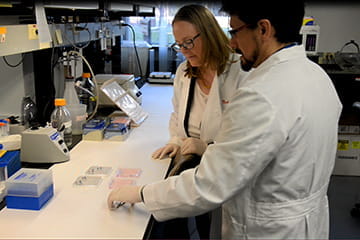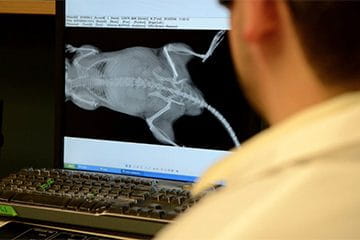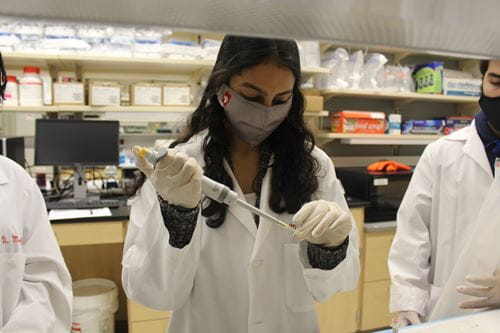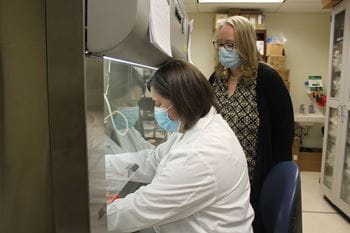Under the direction of Melissa Kacena, PhD, the Kacena Lab is exploring the interaction of the bone and hematopoietic systems, thereby potentially improving the treatment of metabolic bone disease, hematopoietic disorders and fracture healing.
To achieve this goal, the Kacena Lab focuses on the role of megakaryocytes, megakaryocyte growth factors and their receptors in bone homeostasis; osteoblasts and the hematopoietic stem cell niche; regulators of osteosarcoma tumor growth; translational/clinical studies examining the genetic regulation of skeletal homeostasis; the molecular mechanisms underlying bone repair and fracture healing.
 Collaborative Training Environment
Collaborative Training Environment
Trainees within the Kacena Lab include medical students, residents and postdoctoral fellows. The teaching aspect of this lab encompasses molecular and cellular bone biology techniques and/or in vivo fracture healing models. Trainees become disciplined in several techniques, including molecular cell culture (i.e. RNA extraction, qPCR, western blotting, serum/media ELISAs), radiographic (i.e. DEXA, pQCT, microCT, planar radiography), histologic (i.e. thin and thick sectioning, staining, IHC, fluorochrome histomorphometry), and biomechanical (i.e. whole bone mechanical properties).


